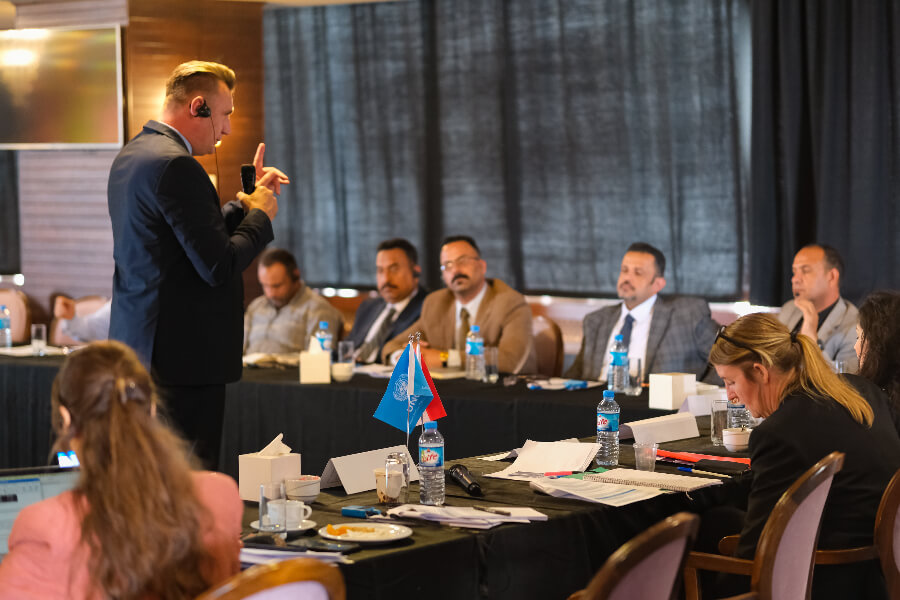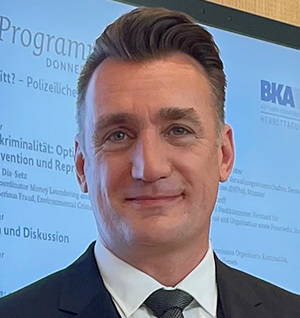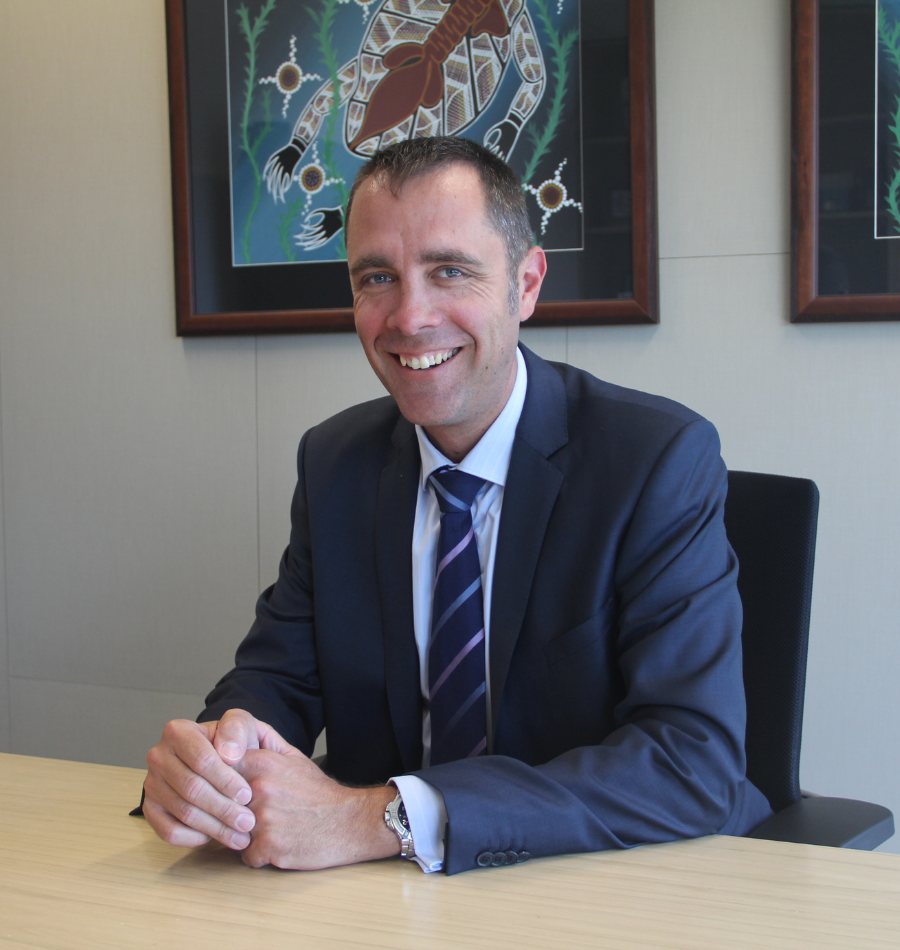Article
Torben Adams
The issue of violent extremist prisoners and radicalisation to violence in prisons is of increasing concern to the international community and the connection between terrorism and transnational organised crime presents new challenges. However, prison systems worldwide face severe limitations in addressing these evolving issues.
High numbers of pre-trial detainees, inadequate funding, lack of resources, subpar infrastructure, overcrowding, poor health conditions, and other challenges significantly hinder the ability of prison administrations to effectively manage violent extremist prisoners and prevent radicalisation. These shortcomings can lead to frustration and despair among inmates, making them (even more) vulnerable to radicalisation.
Within the United Nations, the Office on Drugs and Crime (UNODC) acts as the custodian of international standards and norms related to the treatment of prisoners. It assists Member States, upon request, in applying these standards and norms in practice, and it has built extensive experience in providing technical guidance and implementing assistance programmes for prison reform.
UNODC is also tasked with helping Member States align their counter-terrorism legislation with universal legal instruments against terrorism and enhancing their criminal justice capacity to prevent and counter terrorism and violent extremism in accordance with the UN Counter-Terrorism Strategy and relevant UN Security Council resolutions.
In response to Member States requests, UNODC developed a comprehensive technical guide on the management of violent extremist prisoners and the prevention of radicalisation to violence in prisons (“Handbook on the Management of Violent Extremist Prisoners and the Prevention of Radicalization to Violence in Prisons”).
Through technical assistance, UNODC is helping governments to translate this manual into effective action on the ground. More than 20 Member States are currently benefiting from UNODC assistance dedicated to addressing violent extremism in prisons – in the Middle East and North Africa, sub-Saharan Africa, Central Asia, and South and South-East Asia.
Efforts to combat extremism in prisons must consider each country’s unique context and laws. UNODC partners with governments and stakeholders to tailor its approach accordingly.
“All-of-UN” approach
The military defeat of Daesh at its final stronghold in northeast Syria in 2019, less than a kilometre from the Iraqi border, triggered a transnational humanitarian, human rights and security crisis that remains unresolved.
More than 70,000 people from Iraq, Syria, and at least 60 other countries with perceived or actual ties to Daesh have been living in closed camps within the Autonomous Administration of North and East Syria.
As of May 2022, at least 57,000 people lived in the largest camp, Al-Hol, of whom approximately 30,000 are Iraqi. While several Member States are returning their nationals from the camps, repatriation is only one step in the process.
These nations are seeking support to develop clear plans for their nationals with suspected or actual ties to Daesh returning from the camps, backed by sufficient resources and expertise.
The objective is to ensure that the policies and procedures surrounding protection, risk assessment, legal evaluations, interviews, detention, investigations, victim and witness services, prosecutions, rehabilitation, and reintegration are consistent with human rights principles, are age and gender-sensitive, and operate within a comprehensive framework.
In response to this global challenge, the United Nations Secretary-General issued the “Key Principles to Guide UN Support to Member States for the Protection, Repatriation, Prosecution, Rehabilitation and Reintegration of Women and Children with Links to United Nations Listed Terrorist Groups” and called on United Nations entities to leverage and coordinate existing mandates and capacities to unite in assisting of Member States with the return of their nationals.
In this context, 15 United Nations entities collaboratively developed the Global Framework for United Nations Support on Syria/Iraq Third Country National Returnees (“Global Framework”).
Through a coordinated “All-of-UN” approach, the Global Framework supports Member States to protect and address the needs of returnee victims, including women and children, and to develop comprehensive and tailored prosecution, rehabilitation, and reintegration (PRR) strategies for adults suspected of committing terrorist acts as per the international legal framework delineated in United Nations Security Council resolutions 2178 (2014) and 2396 (2017).
In this regard, the Global Framework calls for human rights-based, age-appropriate, and gender-sensitive programming and policies along two pillars: the first supporting humanitarian assistance and protection needs of children and adults, and the second supporting requesting Member States to promote security and address accountability, including through PRR.
More specifically, one of the primary objectives is to promote security and address accountability by using human rights-compliant methods to protect the population from possible security risks posed by returnees.

Supporting prison and penal reform in Iraq
UNODC is the leading UN entity on the technical support on prison and penal reform provided to the Government of Iraq counterparts, especially to the Iraqi Correctional Service.
Currently, UNODC implements technical assistance projects with the generous support of Denmark, the Netherlands, and the Bureau of Counterterrorism, U.S. Department of State.
In close cooperation with these partner countries, UNODC has implemented programmes that gained in-depth knowledge of the challenges, needs and priorities of the Iraqi’ penitentiary systems.
According to Government of Iraq, more than 1,700 Iraqi detainees have been repatriated from the prisons and detention centres controlled by the Syrian defence forces (SDF) through direct cross-border handovers and will continue repatriating more.
Since Daesh started losing territorial control in 2017, Iraqi detention centres and prisons have witnessed a dramatic increase in the number of detainees charged with terrorism-related offences, especially in areas liberated from Daesh’s control.
The beforementioned Report of the UN Global Framework Joint Scoping Exercise for Iraq calls on the UN to build the institutional capacity of the Government of Iraq to establish effective prison management of violent extremist offenders in compliance with the United Nations Standard Minimum Rules for the Treatment of Prisoners (“Nelson Mandela Rules”) and the United Nations Rules for the Treatment of Women Prisoners and Non-custodial Measures for Women Offenders (Bangkok rules), including to promote adequate prisoner classification, plan disengagement and/or deradicalisation interventions for violent extremist offenders, and address the risks of recruitment by UN designated terrorist groups in prisons.
Iraq’s Ministry of Justice oversees the penitentiary system, but detention facilities are also run by the Ministries of Interior, Defence, Labour and Social Affairs (for juveniles), and the Kurdish Regional Government. Prison overcrowding – prisons are operating at over 300% capacity – and illicit drug issues in prisons pose severe human rights, health, and security challenges, and are the primary cause of violations of international minimum standards for prisoner treatment.
Prison overcrowding extends beyond space concerns, impacting nutrition, sanitation, hygiene, healthcare, disease transmission, care for vulnerable groups, mental and physical health, and access to constructive activities and programmes. It leads to conflicts, violence, deteriorating infrastructure, and major security and management problems.
Iraq’s criminal justice system works closely with UNODC to overcome challenges related to high-risk prisoners, custodial rehabilitation, post-release monitoring, community-based reintegration, and recidivism-prevention programming.
The Iraqi Government is nearing the completion of a plan to expand and renovate some state-run prisons, with expectations of reopening them soon. This effort aims to address the overcrowding problem exacerbated by prison closures and an influx of Daesh-linked prisoners in recent years. Reconstruction is almost finished at the Baghdad Central Prison (formerly Abu Ghraib), and it’s anticipated to resume operations, as per the Ministry of Justice.
Expanding capacity for a substantial number of high-risk prisoners without developing necessary policies for their management and strengthening the prison service’s institutional capacity poses considerable security and safety risks for Iraq’s correctional system.
UNODC conducts research and collects data on the patterns and trends of extremist radicalisation within prison systems. This information is vital for designing effective counter-radicalisation strategies. We work in close cooperation with the Iraqi partners to establish an improved classification system supporting a more individualised rehabilitation process.
The development of interventions focused on the individual “disengagement process from violent extremist beliefs” is planned for the near future as well.
Correctional officers have already acquired an advanced understanding of risk and needs assessment tools and increased their willingness and ability to effectively classify prisoners associated with terrorist and returning foreign terrorist fighters, thanks to the training provided by UNODC.
Improving the intelligence capacity of the correctional service, enhancing inter-agency cooperation, and preparing the service for cross-border prisoner transfers are future goals that UNODC and the Government of Iraq are working on together.
A centralised and standardised government-managed intake process is also planned, along with the mapping and assessment of facilities to determine accommodation capacities and address overcrowding.
UNODC will also promote civil society engagement to reflect community needs and priorities, fostering transparency and accountability. Leveraging its extensive network of national and international partner institutions and experts, UNODC provides access to internationally recognised best practices through joint training activities and dissemination events. Collaboration with UN sister agencies such as UNOCT, IOM, UNICEF, and others is vital, following the “All-of-UN” approach.
Based on the broad array of existing UNODC reference and training materials, we will continue to provide guidance based on international experience, deliver tailored training, and provide mentoring support to the Iraqi Correctional Service.
In conclusion, the fight against terrorism remains an ongoing priority for Iraq and its international partners. Cooperation and coordination among various stakeholders are essential to address the root causes of extremism, prevent the resurgence of terrorist groups, and stabilise the country.
Terrorism is a global issue that transcends borders and affects people far beyond individual countries or regions. It requires global collaboration to safeguard the security and well-being of people worldwide. UNODC is honoured to work closely with the Government of Iraq on this crucial task.
For more information, please visit UNODC website and read the recent report on the achievements of the Returning Foreign Terrorist Fighters Detention Programme.

Torben Adams is UNODC’s International Coordinator for the Returning Foreign Terrorist Fighters Detention Programme. He started his career as a prison officer in 1997 and his final position within the prison system was as the governor of a juvenile facility. He has a wealth of experience, which includes leading the “Prison and Probation” working group of the Radicalisation Awareness Network and serving as an expert in various European organisations, such as the Council for Penological Co-operation of the Council of Europe and CEPOL. Between 2017 and 2020, he held the position of Head of Division in Germany’s Federal State of Bremen Ministry of Justice and Constitutional Affairs.

